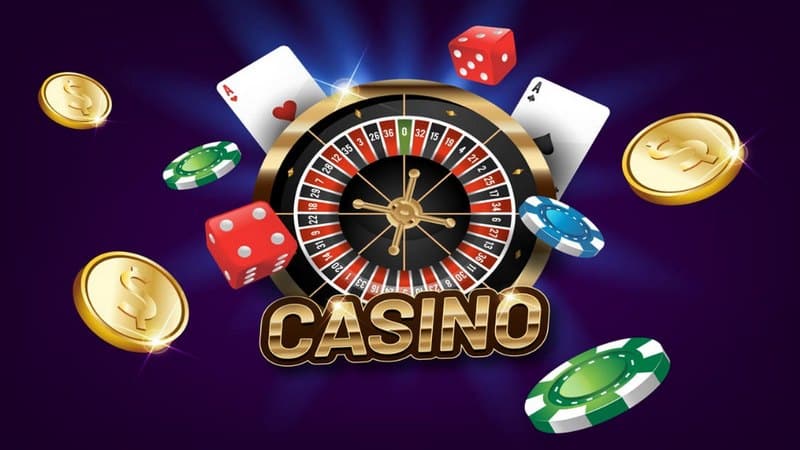Casinos have long held a special place in the world of entertainment, blending chance, strategy, and excitement in ways few other venues can match. These establishments, where people gather to test their luck and skills, have a fascinating history that spans centuries and continents. The concept of a “demo slot pg soft” has evolved significantly, shifting from ancient rituals to the glitzy, high-tech environments we know today. In this article, we will explore the history of casinos, how they have transformed over time, and what they mean for modern society.
Ancient Beginnings: The Roots of Gambling
While the modern casino as we know it didn’t emerge until the 17th century, the roots of gambling can be traced back to ancient civilizations. Early forms of gambling were found in cultures such as the Chinese, Romans, and Egyptians, who used dice, betting games, and games of chance in their daily lives.
The earliest known gambling game, Senet, was played by the ancient Egyptians around 3100 BC, with players betting on the outcomes of dice rolls. Meanwhile, the Chinese are credited with inventing some of the first card games, with references to the game’s existence found in records dating back to 1000 BC. These ancient games were often tied to religious rituals and ceremonies, marking the early intersection between spirituality and entertainment.
The Birth of Modern Casinos: Venice and Beyond
The evolution of the modern casino began in Europe during the Renaissance. One of the pivotal moments in the history of gambling was the establishment of The Ridotto in Venice in 1638. Created by the Venetian government, it was the first official gambling house designed to regulate and control the practice of gambling. The Ridotto offered a range of games, including the earliest versions of Baccarat and Poker, and it was intended to curb illegal gambling that was rampant in the streets.
Venice’s Ridotto was the first public gambling house to offer a safe, controlled environment, allowing for greater regulation. However, the house was short-lived, closing in 1774 due to political pressures and a growing concern over the negative social impacts of gambling. Despite this setback, the idea of regulated gambling would persist.
In the 18th century, Monte Carlo emerged as one of the world’s most famous gambling destinations. The Casino de Monte-Carlo, which opened in 1863, became a symbol of opulence and luxury, attracting the European elite. The casino’s introduction of Roulette, a now-legendary game of chance, helped solidify its status as a premier gambling hub. This period saw the rise of grand, lavish casinos designed not only for gambling but for socializing, dining, and enjoying entertainment in a luxurious setting.
The American Revolution of Casinos
In the United States, the story of casinos took a different path. Gambling was initially prohibited in many parts of the country, but by the 19th century, the Western frontier began to see the development of informal gambling establishments. The infamous Old West was full of saloons and gambling halls, where poker, blackjack, and faro were common pastimes. These venues lacked the glamor of their European counterparts, but they were a hub of excitement and risk.
The real transformation of casinos in America, however, came in the 20th century with the rise of Las Vegas. Originally a small desert town, Las Vegas exploded into a global gaming and entertainment capital after the legalization of gambling in Nevada in 1931. The opening of the Golden Nugget and El Rancho Vegas in the 1940s set the stage for the city’s rapid expansion into a casino mecca. Las Vegas quickly became synonymous with extravagance, offering everything from slot machines to lavish shows, attracting visitors from all walks of life.
In the 1970s and 1980s, casinos began to spread across the United States, with states like New Jersey and Mississippi legalizing gambling to boost local economies. The rise of Atlantic City, with its iconic boardwalk casinos, provided East Coast visitors with an alternative to the glitz of Las Vegas.
The Digital Revolution: Online Casinos
The dawn of the internet age brought about a new chapter in the history of gambling. In the 1990s, the rise of online casinos allowed players to experience the thrill of gambling from the comfort of their homes. Internet gambling was initially met with skepticism, but as technology improved and regulations evolved, online casinos grew in popularity. Today, they offer a wide range of games, from traditional table games to innovative video slots, all available at the click of a button.
The allure of online casinos lies in their convenience, with players able to enjoy gaming at any time and from any location. Modern casinos offer live dealer games, virtual reality experiences, and advanced player tracking systems that enhance the overall experience. Online gambling has also made casinos more accessible to a wider audience, allowing people from different parts of the world to engage in gaming without ever stepping foot in a physical casino.
The Social Impact of Casinos
Casinos, while undeniably entertaining, have had a significant impact on society. They are often associated with both positive and negative social consequences. On one hand, casinos contribute to local economies, generating revenue, creating jobs, and fostering tourism. Large casino resorts also offer entertainment beyond gambling, such as concerts, fine dining, and luxury accommodations.
On the other hand, the social costs of gambling, particularly problem gambling, can be substantial. The addictive nature of certain casino games, coupled with the high stakes involved, has led to a growing concern over gambling addiction and its associated impacts, such as financial ruin and damaged relationships. Many casinos now have responsible gambling programs in place, offering resources and support for players who may be at risk of addiction.
Conclusion: The Future of Casinos
Casinos have evolved far beyond their humble origins. Today, they stand as symbols of entertainment, luxury, and excitement, drawing millions of visitors each year to destinations like Las Vegas, Macau, and Monte Carlo. Whether in a land-based casino or an online platform, gambling continues to attract people with its blend of risk, reward, and thrill.
The future of casinos seems promising, with advancements in technology paving the way for new forms of gambling. From the integration of artificial intelligence and virtual reality in gaming experiences to the continued expansion of online casinos, the next generation of casinos will be defined by innovation and accessibility. However, the challenge remains to balance the allure of gaming with the social responsibility of ensuring that players can enjoy their experience safely and responsibly.
As society continues to navigate the complexities of gambling, casinos will undoubtedly remain a central part of the entertainment landscape, ever-changing yet always rooted in the age-old pursuit of luck.


